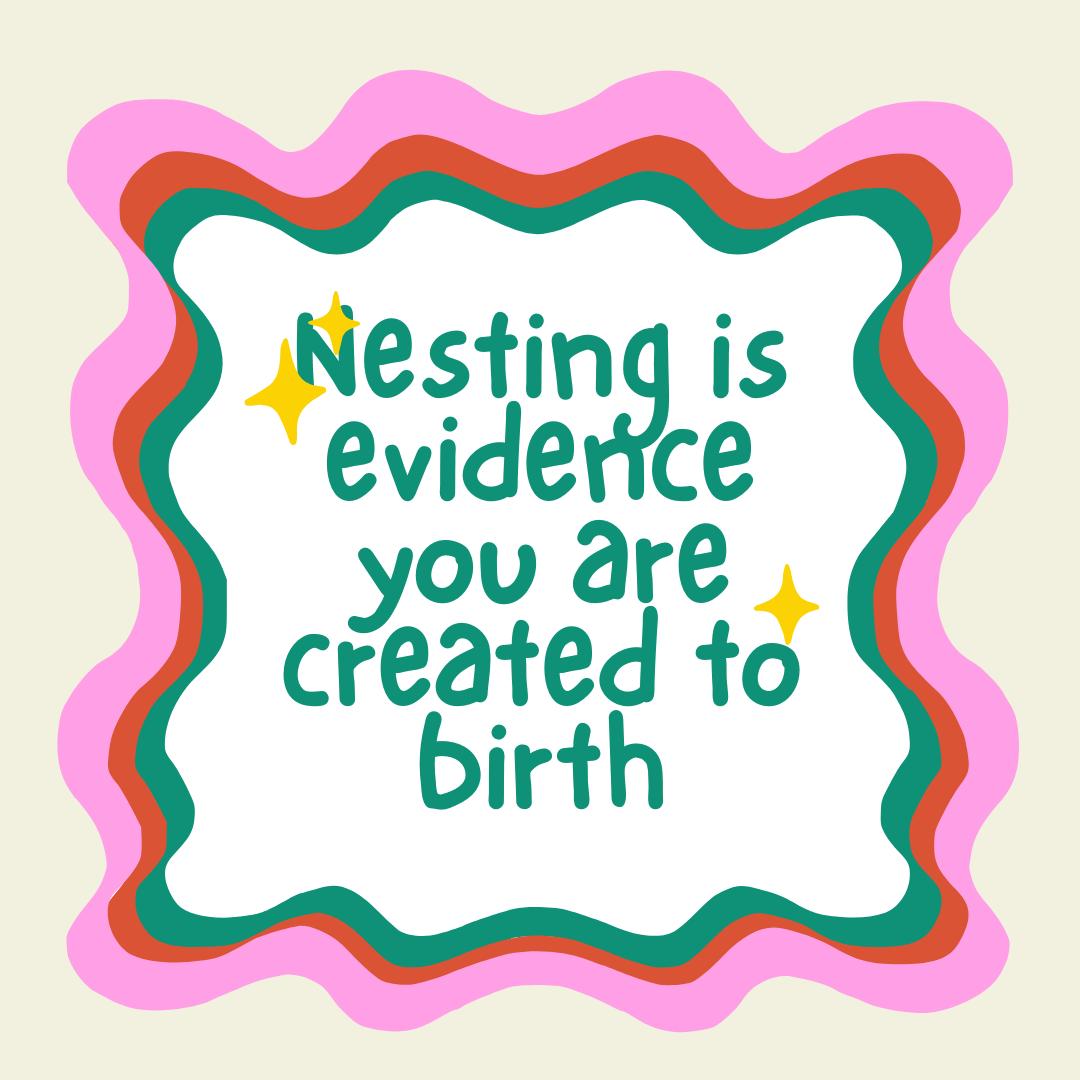Nesting — evidence that women are naturally equipped to be mothers
Nesting: Nature’s Way of Saying, “Get Ready, Mama.”
There comes a moment in late pregnancy when an unstoppable urge takes over — a strong (maybe irrational) urge to reorganize the linen, clean the baseboards and maybe even buy an SUV. This urge feels as vital as breathing, somehow staying up late doing deep cleaning makes perfect sense in the pregnant brain.
People kind of joke about nesting as if it’s a funny little episode to expect in pregnancy. But! There’s actually some beautiful significance to nesting that’s worth knowing. Nesting is evidence that women are naturally equipped to be mothers — even before the baby is born.
The Mammal in You Knows What’s Coming
Every mammal — from a mouse to a mare — starts “nesting” as birth approaches. It’s not really about “getting chores done ahead of time so you can rest after the birth” It’s actually more about creating safety.
In nature, the nesting instinct protects both mother and baby. If you’ve ever had a domestic animal (your pet dog or cat) give birth in your home, you’ll remember their behaviors. Your momma cat will drag your favorite sweater into the dark, out of the way corner of a closet and hide there until the kittens are born. They don’t ever build their “nest” in the high traffic area of your house. It’s all about privacy and moving away from anyone or anything that can pose a risk. If you ever had a dog who birthed at your home, you may have been told by your veterenarian to take momma dog out of her kennel into the yard to empty her bladder after the first puppy is born. The momma dog will not birth the next puppy in the yard because chemically, she thinks there may be a threat. So, she’ll stop her labor until she gets back into her kennel (her nest) and the humans leave the room. You, with your sudden compulsion to deep-clean and stock snacks, are simply doing the human version of that same primal ritual: making sure your space says, “We are safe here.”
The Purpose Behind the Urge
Biologically, nesting is your nervous system aligning with the hormonal orchestra of late pregnancy. Rising oxytocin and estrogen trigger a beautiful sequence of changes that will bring the baby. The shift in hormones sharpens your focus, heightens your sensitivity to your surroundings, and helps you have clarity of what you need to feel safe in labor.
Nesting as Confidence Building
Here’s the deeper truth: every time you follow that instinct — whether it’s washing the baby’s clothes, setting up your birth space, or simply making a pot of soup — you’re reaffirming your body’s wisdom. In those final days of pregnancy, you are rehearsing trust. You are practicing listening to your instincts. It’s like your instinctive actions are saying “I know what to do. I was made for this.”
How to Nest Intentionally
If you feel the nesting energy coming on strong, lean into it — just don’t let it run you ragged. Here are some things you may want to consider focusing on when your urge to clean hits:
Create a birth space that feels safe and calm. Dim lights, familiar smells, soft textures — these tell your nervous system it’s okay to relax. Remember, you’ll be spending a lot of time in your bedroom during the first weeks after the birth. If there’s a project you’ve been meaning to get to, do it now! Nothing is worse than being stuck in bed feeling irritated by an unfinished project.
Prepare nourishment. Cook a few easy meals or snacks for postpartum you — and maybe for the rest of your family. Your partner may offer to cook for you. But, there’s a good chance your partner will be awake a lot during the night helping you. And they may be too tired to cook healthy meals.
Set yourself up for success. Having your supplies clean and organized can really make your early days of parenting so much smoother.
Nesting isn’t neurotic — it’s nature.
It’s your hormones, your instincts, and your love all conspiring to prepare you for one of the most powerful acts of your life.
When you feel the pull to clean, to plan, to make space — celebrate that you are already driving hard to keep your baby safe!
That’s your body saying: “I’m ready to welcome life.”

